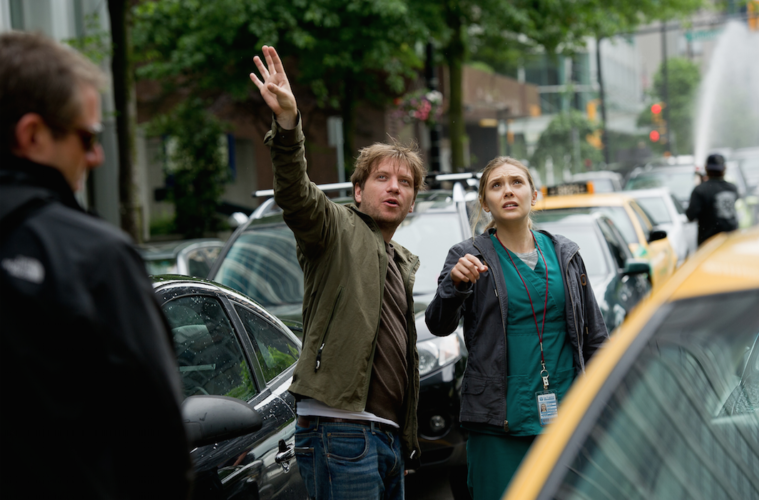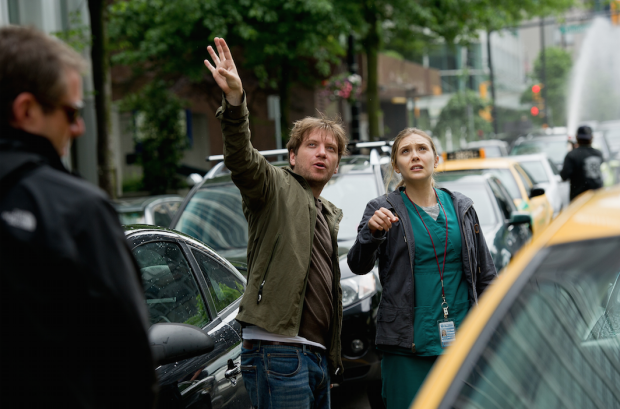
“One of the most accomplished, entertaining summer blockbusters in years,” we noted in our review of the impending Godzilla reboot. It’s no secret we’re fans of Gareth Edwards‘ immaculately directed monster mash and with the creature feature arriving in theaters tonight, we’re taking a look at a handful of films that informed the up-and-coming director’s style in both themes and execution. Before heading to the cinema this weekend, brush up on the options below, ranging from some obvious influences to the director’s beginnings to the film that started it all.
Atonement (Joe Wright)

Certainly the most outside-the-box addition on this feature, Joe Wright’s sweeping drama includes no monsters and little peril outside the romantic kind, but it does share one striking similarity with Godzilla: its talented cinematographer. While Seamus McGarvey already had extensive blockbuster experience with The Avengers, that quick-cutting, colorful style is far removed from Edwards’ film, instead opting for the more elegant approach reminiscent in the aforementioned period drama. McGarvey also employs a handful of well-constructed single shots to build the tension, an approach of his I first took notice of in Atonement (which includes one of the longest single takes in recent years). – Jordan R.
Close Encounters of the Third Kind, Jaws, and Jurassic Park (Steven Spielberg)
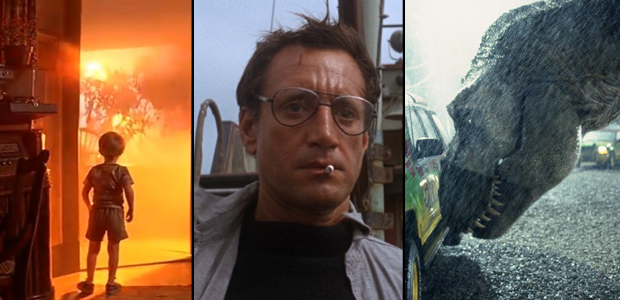
Director Gareth Edwards has not been shy about citing Steven Spielberg as a major influence on his approach to the otherworldly and mysterious in Godzilla, and that inspiration shows up onscreen throughout the film. From the carefully constructed, slow-building reveals of the monsters, to the father-son relationship between Cranston and Taylor-Johnston, Edwards demonstrates that he’s not only studied Spielberg’s style, but he can channel it into something of his own. Yes, Jaws and Jurassic Park have clearly informed the monsters and their intersection with the human contingent, and the new film’s overall structure is most reminiscent of Spielberg’s pared down take on War of the Worlds. But if you want a more insightful peek at what Edwards is doing in that paranoid-driven first half hour, and what the film Godzilla could have been had it kept plowing down that road of limited, evolving wonder, look no further than the masterclass of event filmmaking that is Close Encounters. Rory Neary and his obsessive quest to interact with the unknown is still potent, powerful and poignant, and the perfectly calibrated execution still begs us to wonder “why don’t they make ’em like this anymore?” – Nathan B.
Cloverfield (Drew Goddard)
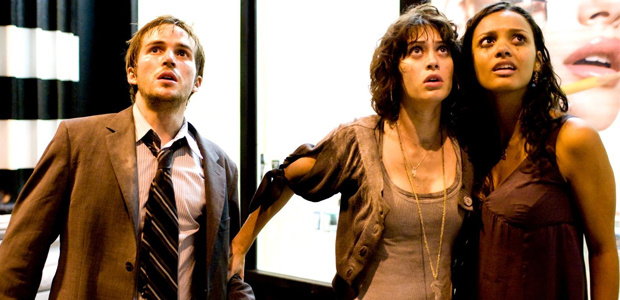
Cloverfield did a lot of things wrong, between unsympathetic characters and camerawork that strove too hard for veracity and not hard enough for visual clarity, but one thing that it did very well was creating a sense of scale. From that first teaser trailer all the way through the numerous set pieces up until the film’s eventual end, Cloverfield – perhaps more than any other monster movie up until Godzilla – helped to truly understand the enormity of the titular monster and it’s impact on the city it’s trampling. By keeping the point of view firmly rooted on the ground, director Matt Reeves allows some mystery and awe to seep into an age when digital effects allowed for realistic but disinterested God’s-eye views of our cinematic monsters. Gareth Edwards follows this ground-level visual template to stunning effect, especially since his camera is not moored to the shaking hands of a terrified onlooker. Edwards may have done Cloverfield one better, but Cloverfield still stands as a striking pioneer of this style. – Brian R.
Gojira (Ishirô Honda)
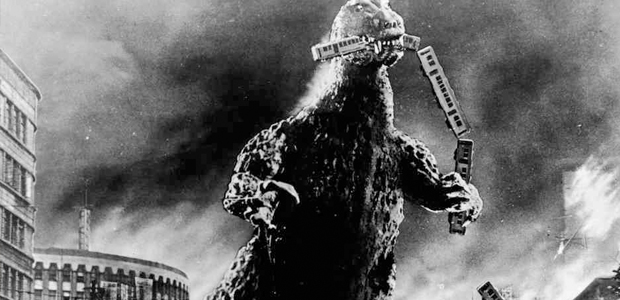
If Edwards’ slow-roasted efforts seem at odds with the Godzilla films you’re familiar with, then perhaps it’s time to take the plunge into Ishiro Honda’s Gojira, the movie that started it all. Long before he became the equivalent of a scaly-hided professional wrestler, Honda’s dark and harrowing film configured Godzilla as a fearsome, roaring metaphor for nuclear annihilation. Standing in stark contrast to other giant beast epics, Honda’s film shares more in common with somber tableau’s like Kaneto Shindo’s Children of Hiroshima than say, King Kong. Honda, a soldier in the Imperial Army during WWII, passed through Hiroshima after the bomb dropped and the unflinching reality of this film bears witness to his experience. The agony of war and the helplessness of the innocent are captured in the wake of the monster’s destruction, while the attacks themselves have been configured as nightmares of smoke and shadow, the irradiated beast rising up like a demon released from some medieval wood carving. The pleasing, hand-made special effects merge with Akira Ifukube’s stirring and iconic score to help bring to life one of the must terrifying and durable of all movie monsters. – Nathan B.
The Host (Bong Joon-ho)
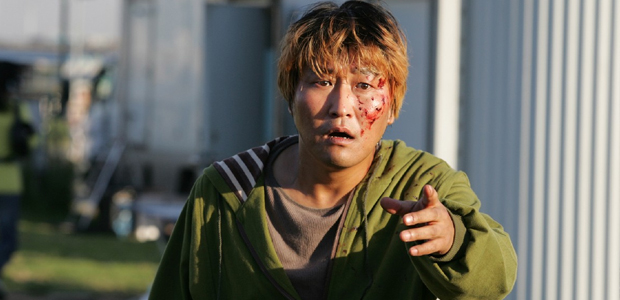
The gold standard for most contemporary monster movies, Bong Joon-Ho’s Gwoemul (The Host) may offer up a smaller creature than the city-kicking behemoths of Godzilla, but as a thrilling drama the film itself stands tall. Bong, even moreso than Edwards, balances his feature—following a sympathetic and deeply real family as they search for their kidnapped youngest member—between the traditions of classic B-movie creature features and Spielberg adventures of the 1980’s. The way Gwoemul handles the monster is extraordinary and intelligent; it’s trotted out in its full, freakish glory some twenty minutes in, and each subsequent appearance links it to a major emotional event in the lives of the film’s persevering family unit. Those screaming about Big G’s screentime will note the river mutant gets even less here, but its impact on the film at large is magnified because of the impressive characterization of the characters who contend with it. – Nathan B.
Monsters (Gareth Edwards)
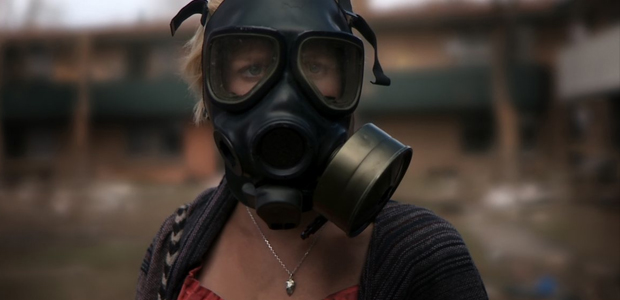
If one wants to see what convinced producer Thomas Tull to hand over $160 million to director Gareth Edwards for Godzilla, look no further then his directorial debut, the miniscule-budgeted Monsters. While the title could have been just as apt for his newest film, the director creates a stunning sense of atmosphere with his limited means, effectively placing us in war-torn environment populated by fantastical creatures. What’s even more remarkable — or detrimental, to some impatient audiences — is that the director more or less recreated his slow-burn approach with Godzilla, one of the boldest moves we’ve seen as of late in the blockbuster arena.
Godzilla hits theaters on Friday, May 16th.
Which films would you recommend seeing before Godzilla? Are any of your favorites above?

